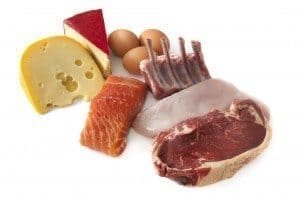Tips for Feeling FULL-filled

It is important to eat throughout the day, but constant snacking can undermine your health. According to an American study, children are snacking up to three times a day. And these snacks, such as salty treats, candy, and sweetened beverages, aren’t necessarily healthy. Fortunately, with the right tips, you can reduce the number of times you snack throughout the day. Eating your meals the right way can help you feel full longer, and it can be better for your waistline.
Glucagon is an appetite hormone from the pancreas that is said to “[signal] the body to reduce levels of other appetite hormones like ghrelin.” This essentially suppresses a person’s appetite and is said to produce a feeling of fullness. Although glucagon appears in every person’s body, it’s not guaranteed to work for everyone. In fact, according to a study published by The Endocrine Society, glucagon losses its effect on people struggling with obesity.
Feel More Full!
Listed below are a few Mindful tips to help you slow down and enjoy your meals.
1. Eat slowly. A study in the Journal of the American Dietetic Association found that women who took small bites and chewed each bite 20-30 times consumed 67 fewer calories on average. With Mindful Eating, savoring each bite and being aware of the smell, taste, and texture can add greater satisfaction to each meal.
2. Start your meal with soup, salad, or fruit. Research by Dr. Barbara Rolls at Pennsylvania State University shows that foods low in energy density, with fewer calories relative to their weight and volume, increase satiety. Research showed that people who ate vegetable soup before lunch consumed fewer calories on average (about 20 percent less). Other studies show the same effects with salads and apples.
3. Eat more protein. Protein is more satiating than carbohydrates and fats for many people. Protein promotes prolonged satiety, according to the American Journal of Clinical Nutrition.
4. Drink water before meals. In the Journal of American Dietetic Association, a study found older women who drank two cups of water half an hour before breakfast, ate on average 75 fewer calories than when they didn’t drink water.



